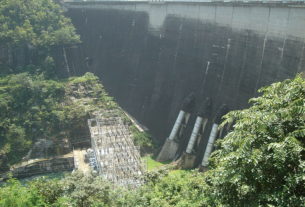Thailand will meet the schedule of having its first nuclear plant feed power into the system in 2021 if the government gives its approval, the technical adviser to the Nuclear Power Programme Development Office (NPPDO), Pricha Karasuddhi, has said.
By The Nation
In an interview to Energy Saving magazine, he said that once the government gave its nod for the nuclear-power development programme in January, construction could start in 2014, with completion slated for 2020. He said construction of the second plant would take less than six years, as personnel would be more experienced then.
The Cabinet will be asked to consider the plan in January, three years after the programme was initiated as part of the policy for national energy security. During the past three years, the office has spent most of its time selecting the appropriate locations.
The NPPDO was established to educate the public and clarify points of concern. It is also to complete a study on
Even if the Cabinet turns down the plan, “the public-awareness process won’t stop. We still need to continue with the education process or we will lose our contact with local people,” Pricha said in the interview. “The process must continue until the day nuclear power plants are erected.”
In terms of personnel,
Pricha also assured all of safety.
“The safety level is high, as seen in the absence of accidents at 400 nuclear power plants. Moreover, communities within a 5-kilometre radius of the nuclear power plants should benefit from financial assistance, at over 2 satang per unit, from the community development fund.”
During the past three years, the office found that 60 per cent of the public agreed with the nuclear-power plan, while 40 per cent opposed it. However, in the target provinces where the nuclear power plants are to be located, the approval rate was 40 per cent. The approval rate at the community level could fall further to 20 per cent.
Pricha noted that it was important to explore how to raise the approval rate at the community level.
Agence France-Presse reported that
Peter Chin’s comments to state media follow his announcement in May that the cabinet had approved in principle the construction of
Chin told the Bernama news agency that the government hoped, by 2013 or 2014, to be able to finish evaluating the requirements for the nuclear plants.
He said the country was heavily reliant on fossil fuels for its electricity supply, with gas accounting for 64 per cent of
“We must get away from this. [It is] very much [an] imbalance. Most countries have a good balance.”
But Chin said the potential for renewable sources was limited.
“Yes, very good, everyone wants to say that we want renewables, but what about cost Can we force the people to accept high tariffs” he said.
“We want hydropower to assume a prominent role, as it is clean, but this can only be achieved in Sabah and Sarawak [on Borneo island], where there is much potential – but not in peninsular
State energy firm Tenaga has said it could construct
Source: The Nation
